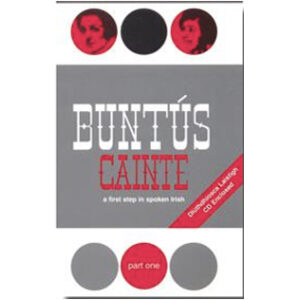Health to the men and may the women live forever!
Note: This is a popular toast that is often given in two parts. Typically the men will toast themselves first, “Sláinte chuig na fir.” (Health to the men.) Irish protocol requires the women to give themselves a greater toast. So they wish themselves eternal health, “Go maire na mná go deo.” (May the women live forever.) Some bodach (lout), who never has suffered the pain and never will, will often offer this play on words, this very proximate homophone, as a retort, “Go mbeire na mná go deo.” (May the women give birth forever.)
In the south, one is more likely to hear a Munster version of this seanfhocal, “Sláinte na bhfear is go maire na mná go deo.” In this version, the genitive plural is used, ‘na bhfear’ (of the men). The version above used the older dative plural, ‘chuig na fir’ (to the men), which used to be required by the preposition ‘chuig’ or ‘chun’. However, to the delight of beginners and the despondency of purists, the dative form of the noun has practically disappeared from the Irish language. It survives in some old sayings.
Note also: The bodach’s retort sounds almost like the woman’s toast because of the Irish inflection called urú (eclipsis). Eclipsis occurs in certain grammatical contexts when an initial consonant is phonetically replaced by another consonant. For example, to form the subjunctive form of the verb ‘beir’ (give birth to), it is eclipsed, the vowel ‘e’ is appended, and the particle ‘go’ is put in front. The consonant ‘b’ is always eclipsed by the consonant ‘m’. Eclipsis means that the ‘m’ is now pronounced instead of the ‘b’ in ‘go mbeire’ making the eclipsed ‘b’ silent. Therefore, ‘go mbeire’ is almost pronounced like ‘go maire’. The verb ‘go maire’ is also in the subjunctive form. However, the letter ‘m’ is never eclipsed.
